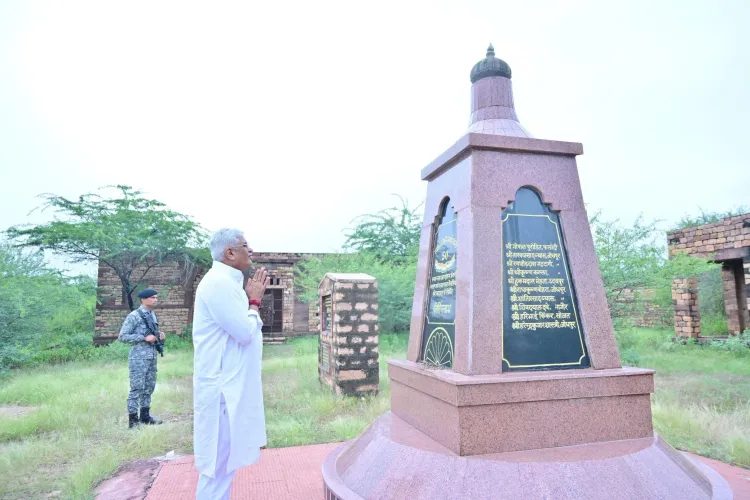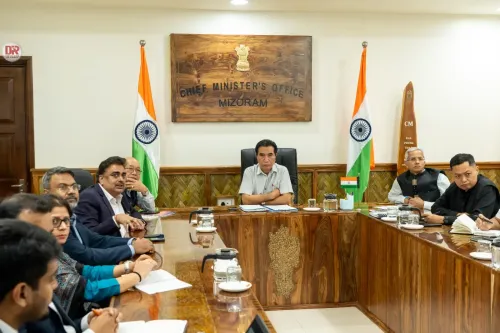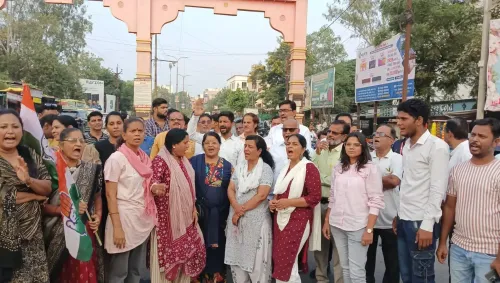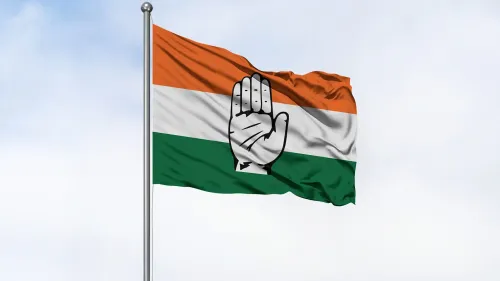Will Machia Fort Transform into a Pilgrimage Site?

Synopsis
Key Takeaways
- Machia Fort is a significant historical site reflecting India's struggle for independence.
- The fort is set to be developed into a pilgrimage site honoring freedom fighters.
- Current annual visitors number around 300,000.
- Access to the fort is limited to two days each year.
- Future developments will enhance visitor facilities and accessibility.
Jodhpur, Sep 1 (NationPress) Union Culture and Tourism Minister Gajendra Singh Shekhawat visited the historic Machia Fort near Jodhpur in Rajasthan on Monday, where he paid tribute to the brave freedom fighters who suffered imprisonment and torture during the freedom struggle.
While bowing before the Kirti Stambh, the Union Minister referred to the site as a "symbol of sacrifice and resilience".
During his visit, Minister Shekhawat engaged in comprehensive discussions with officials about the initiative to transform Machia Fort into a pilgrimage site honoring the legacy of freedom fighters.
Additionally, he evaluated proposals for the second phase of developing Machia Biological Park to boost tourism.
He emphasized the fort's historical importance, noting that Machia Fort, situated approximately 12 km from Jodhpur, was originally constructed during the princely era but later repurposed as a prison by the British.
Between 1942 and 1943, numerous freedom fighters from across India were detained here and faced brutal torture.
It is documented that 30 to 32 revolutionaries were moved from Jodhpur jail to Machia Fort, where they endured horrific conditions for nearly eight months.
Many perished, while others received sentences of Kala Pani (cellular imprisonment).
Access for family members was severely restricted, with only rare visits allowed -- typically from a distance of ten feet through small windows.
Union Minister Shekhawat asserted that this tragic chapter of history deserves preservation and respect.
Currently, the fort attracts nearly 300,000 tourists each year.
By establishing it as a sacred pilgrimage site, the Union government intends to evolve Machia Fort into a national memorial that will draw visitors from both India and abroad.
He also mentioned that while the fort displays images of freedom fighters, its gates are accessible to the public only twice a year -- on Independence Day (August 15) and Republic Day (January 26).
With the upcoming development plans, the site will be more frequently open and equipped with amenities to cater to larger crowds, he added.
“Machia Fort will serve not just as a reminder of the sacrifices made for our Independence but also as a source of inspiration for future generations,” Union Minister Shekhawat declared.









